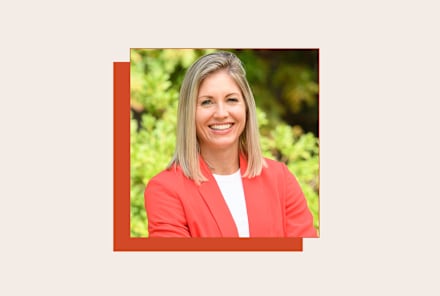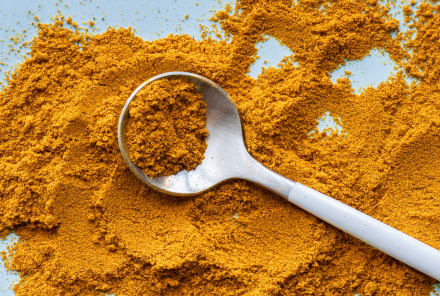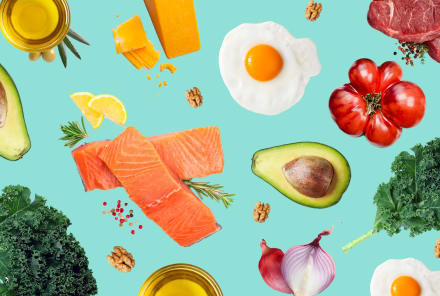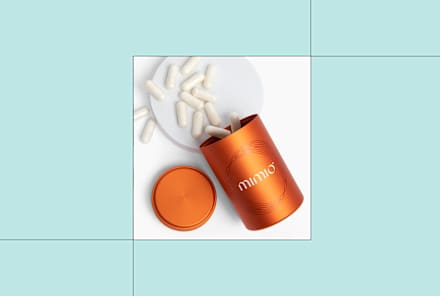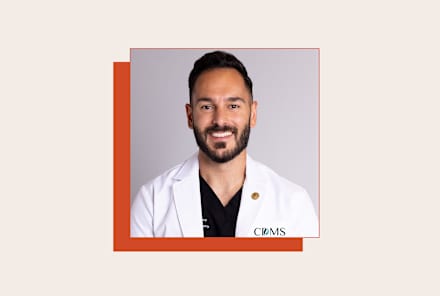Advertisement
Not Sleeping Enough Can Lead To Oxidative Stress In Women, Study Shows

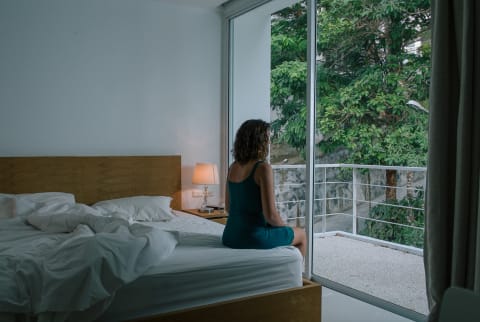
Sometimes it seems like there are a lot of differing opinions among health professionals. Is coconut oil good or bad? Should you do more cardio or strength training?
Those answers can be pretty nuanced and vary based on the person asking them. But the one thing pretty much every health professional can agree on is that we all need to get enough quality sleep1 each night. Period.
Obviously, that’s easier said than done, especially for women. Fluctuating hormone levels2, long work hours, caring for babies or aging parents, and stress are all just a few factors that impact our shut-eye over the years. And even if you feel like sleeping less isn’t affecting you, it likely is starting to take a toll on you internally—especially on your heart health.
According to a study published in the journal Scientific Reports, sleeping 90 minutes less than your norm every night can lead to signs of oxidative stress in the blood vessels3 of 30- and 40-year-old women in as few as six weeks.
Here’s what you need to know.
About the study
Researchers of this study were particularly interested in looking at the impact of mild sleep restriction measures of oxidative stress in endothelial cells—the cells that line blood vessels.
Why? Well, blood vessels comprise the body’s vascular system, which is responsible for delivering oxygen-rich blood to every part of the body and sweeping away waste products. While the heart provides the force needed for blood to move throughout the body, the health of individual blood vessels also significantly impacts the brain.
Blood vessels are susceptible to damaging oxidative stress (aka an imbalance of beneficial antioxidants to harmful free radicals). This is a major risk factor for heart disease—the leading cause of death in women4.
By understanding how a common experience many women in their 30s and 40s have (periods of not sleeping enough) on a common risk factor of the number one killer of women, we can take a more targeted approach to reducing that risk.
So a total of 35 women (who, on average, were 36 years old) who regularly slept seven to nine hours a night completed this two-part study. For six weeks, they followed their regular sleep schedule. For another six weeks, they had their bedtime delayed by an hour and a half (bringing their sleep time to about six hours a night).
Everyone wore a tracker on their wrist to monitor their sleep. At the end of each six-week period, researchers also collected endothelial cells—looking for indicators of oxidative stress.
Sleep restriction led to higher levels of oxidative stress
By the end of the study, it was clear that sleeping less had a double-whammy effect on blood vessel health by:
- Promoting signs of oxidative stress and damage
- Impairing the antioxidant response meant to counter that damage
This combination of inflamed and dysfunctional cells and a lack of quality control from antioxidants is the first step in cardiovascular disease.
"This is some of the first direct evidence to show that mild chronic sleep deficits cause heart disease," study leader Sanja Jelic, M.D. said in a press release.
After menopause, it’s estimated that about 70% of women develop cardiovascular disease 5(which is partially attributed to low estrogen levels). So if blood vessel damage starts from poor sleep in your 30s—potentially persisting through the following decades—vessels may already be in a fragile state right as your risk for cardiovascular disease skyrockets.
What can you do?
The findings of this study further illustrate the importance of getting enough sleep (and enough quality sleep) for women. While some sleep-disrupting situations just can’t be avoided in life—thinking specifically of new parents here—getting seven to nine hours of sleep is a goal that is well within reach for most.
Here’s what you can do.
- Set a consistent sleep schedule: Going to bed and waking up at the same time each is one of the best sleep habits you can establish—irregular bedtimes6 can negatively affect your quality of rest. It helps establish a natural sleep-wake cycle, making it easier to fall asleep and wake up feeling refreshed and makes sure you are blocking off the seven to nine hours of sleep needed to actually sleep seven to nine hours.
- Avoid late-night alcohol: Although alcohol can make you feel sleepy, it disrupts your sleep cycle and shortens your REM sleep7. Either avoid alcohol entirely or drink it earlier (at least four hours before bedtime) to help ensure it doesn’t mess with your sleep.
- Try a sleep-supporting supplement: Magnesium and melatonin are two popular sleep supplements. Magnesium has been found to promote a feeling of calm relaxation (which we could all use before bed) and help improve sleep quality and duration8. Melatonin is a hormone the body produces to promote a state of sleepiness. Here’s a list of our favorite sleep supplements.
The takeaway
There are far-reaching health ramifications to sleeping poorly, especially for women. Even if you’re young and healthy, not getting enough sleep may heighten your risk for heart disease. It’s important to take steps today (like setting a routine, steering clear of late-night drinking, and properly supplementing) to optimize your sleep and energy levels now, and your heart health down the road.
8 Sources
- https://pubmed.ncbi.nlm.nih.gov/33054337/
- https://www.ncbi.nlm.nih.gov/pmc/articles/PMC4327930/
- https://www.nature.com/articles/s41598-023-42758-y
- https://www.cdc.gov/heart-disease/about/women-and-heart-disease.html
- https://www.ncbi.nlm.nih.gov/pmc/articles/PMC5433412/
- https://www.ncbi.nlm.nih.gov/pmc/articles/PMC2718885/
- https://www.ncbi.nlm.nih.gov/pmc/articles/PMC5821259/
- https://www.ncbi.nlm.nih.gov/pmc/articles/PMC3703169/
Watch Next
Enjoy some of our favorite clips from classes
Enjoy some of our favorite clips from classes
What Is Meditation?
Mindfulness/Spirituality | Light Watkins
Box Breathing
Mindfulness/Spirituality | Gwen Dittmar
What Breathwork Can Address
Mindfulness/Spirituality | Gwen Dittmar
The 8 Limbs of Yoga - What is Asana?
Yoga | Caley Alyssa
Two Standing Postures to Open Up Tight Hips
Yoga | Caley Alyssa
How Plants Can Optimize Athletic Performance
Nutrition | Rich Roll
What to Eat Before a Workout
Nutrition | Rich Roll
How Ayurveda Helps Us Navigate Modern Life
Nutrition | Sahara Rose
Messages About Love & Relationships
Love & Relationships | Esther Perel
Love Languages
Love & Relationships | Esther Perel


